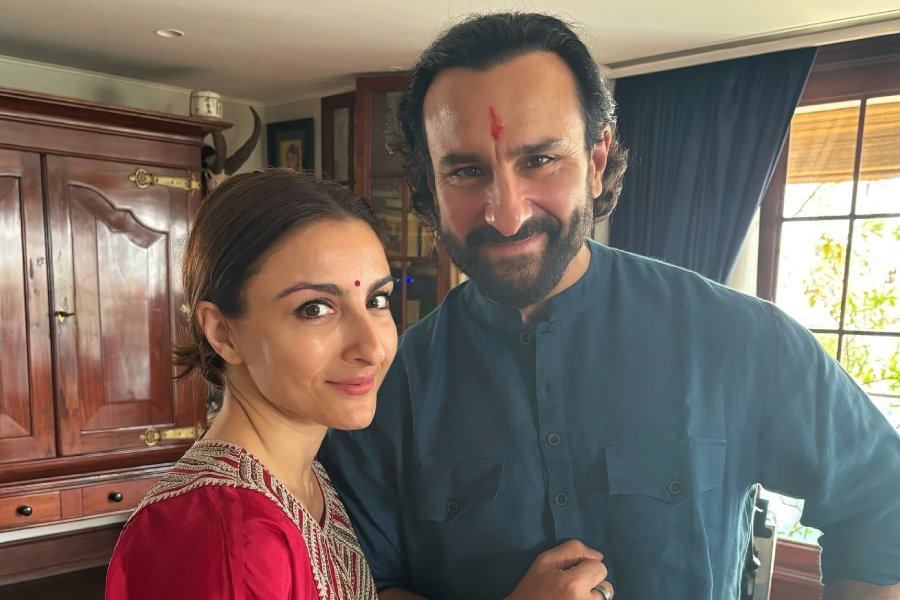Bengali theatre’s undying love for Shakespeare continues to grow stronger with each passing decade. We are at a juncture of time when millennials are beginning to make way for Gen Zers to begin their tryst with the bard, as is evident from the recent spurt of Shakespearean plays mounted by theatre groups populated by young artists. A case in point is 10th Planet’s Macbeth, directed by Sharanya Dey, in which the cast and crew consist entirely of young people. Dey has used Utpal Dutt’s translation of Macbeth as the source text but has edited and altered it considerably.
The most significant modification is to have the two principal characters of Macbeth (Sharanya Dey) and Lady Macbeth (Mary Acharya) bear the narrative — although, much abridged — load of the play, with the other characters mostly performing choric roles. The ploy of rationing the characters works to an extent because what is left of the human order in Macbeth apart from the two towering protagonists can be evoked through suggestions and references. However, not actually having the witches on stage does reduce the play significantly — the witches are germane to the text, driving the action and adding psychological depth.
The opening sequence, with its emphasis on a search that remains quite unspecified, is too protracted to create an impact and the ending does not seem to produce the restorative effect that is called-for — this is not surprising because it is not easy to tamper with the exposition and the resolution of a Shakespearean tragedy and get away with it. But, quite creditably, the middle that comprises the bulk of the play moves smoothly owing to spirited performances by Acharya and Dey. Undoubtedly one of the best actors in the Bengali theatre of our times, Acharya is exceptionally successful in projecting the nuances of the multiple layers of her role. Dey is most effective when he eschews a stilted and an affected manner of dialogue delivery in favour of a more unadorned pattern of speech.

![A moment from 10th Planet’s Macbeth [10th Planet’s]](https://assets.telegraphindia.com/telegraph/2024/Jul/1720835068_foul.jpg)









